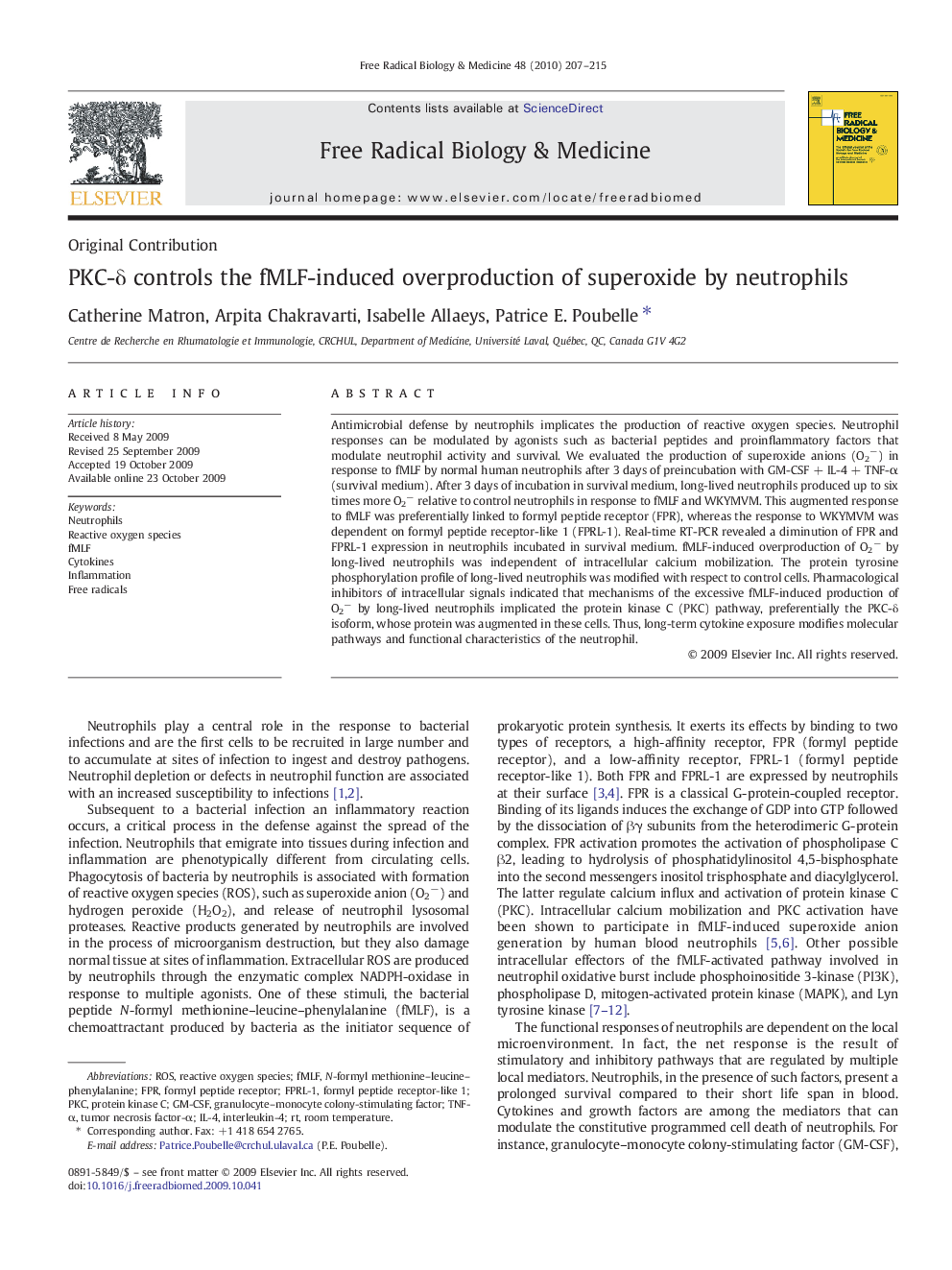| Article ID | Journal | Published Year | Pages | File Type |
|---|---|---|---|---|
| 1909530 | Free Radical Biology and Medicine | 2010 | 9 Pages |
Antimicrobial defense by neutrophils implicates the production of reactive oxygen species. Neutrophil responses can be modulated by agonists such as bacterial peptides and proinflammatory factors that modulate neutrophil activity and survival. We evaluated the production of superoxide anions (O2−) in response to fMLF by normal human neutrophils after 3 days of preincubation with GM-CSF + IL-4 + TNF-α (survival medium). After 3 days of incubation in survival medium, long-lived neutrophils produced up to six times more O2− relative to control neutrophils in response to fMLF and WKYMVM. This augmented response to fMLF was preferentially linked to formyl peptide receptor (FPR), whereas the response to WKYMVM was dependent on formyl peptide receptor-like 1 (FPRL-1). Real-time RT-PCR revealed a diminution of FPR and FPRL-1 expression in neutrophils incubated in survival medium. fMLF-induced overproduction of O2− by long-lived neutrophils was independent of intracellular calcium mobilization. The protein tyrosine phosphorylation profile of long-lived neutrophils was modified with respect to control cells. Pharmacological inhibitors of intracellular signals indicated that mechanisms of the excessive fMLF-induced production of O2− by long-lived neutrophils implicated the protein kinase C (PKC) pathway, preferentially the PKC-δ isoform, whose protein was augmented in these cells. Thus, long-term cytokine exposure modifies molecular pathways and functional characteristics of the neutrophil.
